- Home
- Robert Brockway
Everything Is Going to Kill Everybody
Everything Is Going to Kill Everybody Read online
Everything Is Going to Kill Everybody
Robert Brockway
Just when you thought you’d accepted your own mortality…
Everything Is Going to Kill Everybody is bringing panic back. Twenty illustrated, hilariously fear-inducing essays reveal the chilling and very real experiments, dangerous emerging technologies, and terrifying natural disasters that soon could—or very nearly already did—bring about the end of humanity. In short, everything in here will kill you and everyone you love. At any moment. And nobody’s told you about it—until now:
• Experiments in green energy like the HiPER, which uses massive lasers to create a tiny “contained” sun; it’s an idea that could save the world if it doesn’t consume us all in a fiery fusion reaction first.
• Global disasters like the hypercane—a hurricane so large it could cover all of North America and shoot trailer parks into space!
• Terrifying new developments in robotics like the EATR, which powers itself on meat—an invention in the running for “Worst Decision Made by Anybody.”
Robert Brockway
EVERYTHING IS GOING TO KILL EVERYBODY
The Terrifyingly Real Ways the World Wants You Dead
This book is dedicated to Meagan, who has had the kindness and decency to not realize she’s way out of my league for many years now. It should also be noted that this entire book was her idea. Please direct complaints accordingly.
INTRO
There is no shortage of modern apocalyptic thought: Some Christians thought that the second coming of Jesus would coincide with the turn of the millennium, for technophobes the Y2K scare was the secular equivalent of Armageddon, and most cults declare the end-times every other Wednesday (and alternating Saturdays), while the new hot apocalypse theory on the block, based on ancient Mayan prophecies, says that the end of days is set for 2012.
These are just the current dates, but humanity has believed that we are living in the end-times since the beginning of time. From the moment humans gained sentience, we immediately thought that everything around us was irrevocably fucked, and that it was just a matter of years—if not days—before the whole world came crashing down around us. Nostradamus is the most famous of these ancient criers of doom, but he was not the first by far: One of the earliest apocalyptic heralds is recorded in an Assyrian clay tablet dating all the way back to 2800 BC, which reads, in part:
Our earth is degenerate in these latter days. Corruption is rampant. These are signs that the world is speedily coming to an end.
This tablet, in addition to being one of the first recorded apocalyptic prophecies, also holds the dubious honor of being the oldest inaccurate prophecy in history—considering that since you’re alive to read these words, that anonymous author was wrong by at least five thousand years. Though there have certainly been other mistaken prophets of doom since, none has been such a truly epic failure. It just goes to reinforce that age-old adage: You can’t spell Assyrian without an “ass.”
The end of days isn’t just reserved for cultists and tablet-dictating prehistorical idiots, however. The presumed apocalypse has held intense fascination for people from all walks of life. Sir Isaac Newton, for example, was obsessed with eschatology, the study of Armageddon, and he spent a good chunk of his life attempting to “decode” the Holy Bible, writing a five-thousand-word treatise on the subject. He was absolutely certain that the Bible contained an underlying cryptic code that, if unlocked, would reveal all the secret laws of the universe. After apparently finding his key in the Book of Daniel, Newton settled on the year 2060 as the official RSVP date for the end days.
This is a little-known aspect of the famous pioneer of science, because he was loath to show his work to anybody; this obsession was only recently uncovered in private manuscripts by scholars at the Jewish National University Library Archives in Jerusalem. Newton was so sure of his findings that he even started a preindustrial beef with other apocalyptic prophets, stating that:
It may end later, but I see no reason for its ending sooner. This I mention not to assert when the time of the end shall be, but to put a stop to the rash conjectures of fanciful men who are frequently predicting the time of the end, and by doing so bring the sacred prophecies into discredit as often as their predictions fail.
That’s some serious trash talk, Newtron Bomb! You not only insisted that everybody but you is wrong, but that they are all “fanciful men” (which is how people questioned your sexuality before the internet made it so easy just to type “fag”) who fail so hard that they disgrace God himself. But before you go thinking that one of the most notorious geniuses in history may have actually cracked the mathematical code of the Almighty, you should also know that Newton believed the apocalypse would be preceded by a thousand-year reign of immortal saints—of which he was one. So, unless you believe every day of the last thousand years has been heaven on Earth and that Isaac Newton is basically the Highlander—secretly ruling the world from his immortal apple orchard—perhaps you shouldn’t put too much stock in this particular hypothesis. There is, after all, a fine line between genius and insanity—and apparently Newton wasn’t a “color inside the lines” kind of guy.
Don’t start believing that foretellers of the apocalypse are somehow relegated to the annals of ancient history, either. It wasn’t all Nostradamus, Newton, and ancient Mayans: In 1910 there was an extremely popular theory that the passing of Halley’s Comet would somehow poison the entire Earth with cyanide gas. This was so common, in fact, that snake-oil salesmen of the day made fortunes from hawking so-called Comet Pills that would ostensibly render people immune to unearthly toxins.
Sure, mostly it’s just whackjob cultists who are preaching the end-times these days, but it’s easy to see the appeal of the concept: As human beings we are all keenly aware of our own mortality, but although we know we all have to die eventually, there is some small amount of comfort in knowing that maybe it’s something we could all do together, as a team. There is, after all, no “I” in “apocalypse.”
And so, in the same spirit of these joyously stupid celebrations of the potential end of humanity, this book is going to take you through all the very real ways that we, as a species, have already damn near died, may be dying off right now, or may be suddenly wiped out in the future. What this book will not do is take any sort of metaphysical stance on the end of mankind, by detailing cop-out bullshit that could “irrevocably alter our society.” This book will not take a “grand scheme of things” approach by covering stuff like astronomical events billions of years in the future that could destroy our long-dead planet. And this book will absolutely not take the easy route, by simply fictionalizing some potential apocalyptic scenarios and asking “Wouldn’t that be scary, folks?” No, every single subject within this book fits three simple, important criteria: They affect the reader directly, they pose a real threat, and they could happen soon. To put it more succinctly: Everything in here will kill you and everyone you love in various horrible ways, and there’s not much you can do about it but laugh. Or void your bowels and call your mom. It’s your choice, really (but the former option is substantially less embarrassing and slightly less disgusting).
NEAR MISSES
The apocalypse is frequently discussed like it’s an abstract theory, a worry of the distant future. Everybody wants to tell you about the ways we might die, we could die, or that we’re going to die, but we’re always somewhat remiss in relating all the ways that it’s damn near happened already.
The universe is a war and, as a species, we’re basically just standing in the middle of the battlefield and crying while bullets whiz around our heads. It’s a miracle we’re
still alive at this point, but don’t kid yourself for a damn minute: We’ve almost died a dozen times already. Here are a few of the lesser known near misses in recent history.
1. STANISLAV PETROV
IT WAS JUST PAST midnight in Russia on September 26, 1983, and the Cold War was at its coldest… and warriest. A recent transgression by Soviet military forces had left U.S.-Soviet relations more tense than a Sammy Hagar/David Lee Roth threesome—that is to say, somebody was getting a dick in the eye; it was just a matter of time.
The “transgression,” in this case, consisted of Soviet fighter jets blowing a Korean Air Lines passenger plane straight out of the sky. Two hundred sixty-nine people died in this incident, including one Larry McDonald, United States Congressman. Considering that we’re talking about the height of the Cold War here—where a windblown fart would have been reason enough to nuke a continent—that’s a pretty big “incident.” The fighter pilot’s justification for exploding a small town’s worth of people flying in the danger equivalent of a giant retarded duck? The plane maintained radio silence when hailed. Some might call that a “holy fuck-ton of overreaction” just for getting the cold shoulder from a commercial airliner, but you must keep in mind that Russia at the time was a highly volatile place. These kinds of overreactions were probably common in the USSR, leaving hot-blooded young Russian males so high-strung that, upon receiving the cold shoulder from anything—even girlfriends—a reasonable knee-jerk response was to immediately fire high-yield explosives at the offending woman until she plummeted from the sky in flames… probably.
On top of all this preexisting tension, a NATO exercise was under way in Europe. Operation Able Archer had temporarily raised NATO nuclear alert levels in preparation of a simulated nuclear war. To help put the sheer, palpable levels of death in the air in more relatable terms, let’s use us a down-home analogy: Let’s say you and your neighbor don’t get along. Never have, never will. Such is life. But one fine day, your wife wanders onto the neighbor’s sidewalk, whereupon she is immediately hit with a hand grenade by said neighbor, who then runs up and down the border of your two lawns screaming obscenities and insisting that you “don’t have the balls” to do anything about it. Also, you happen to have been outside this entire time, conveniently polishing your collection of machetes and dynamite. Pretty much everybody is going to die here—it’s practically destiny.
And so was the mood when Lt. Col. Stanislav Petrov took charge of Serpukhov-15, a Soviet satellite station monitoring the skies for signs of nuclear attack. Petrov had agreed to cover the night shift for a coworker, so he was there when a blip suddenly appeared and the klaxons sounded. The long-distance radar was picking up a nuclear missile launch from America, targeting Moscow. While his fellow officers most likely shit themselves with fear and began slapping at nuclear launch buttons like a bunch of epileptic seamstresses, Petrov calmly deduced that the missile was likely a computer glitch.
Top Four Worst Things to Sound
• Puget
• Of Silence
• Of Music
• Klaxons
And luckily the right man was in charge. Petrov literally wrote the book on pants-wettingly terrifying near apocalypses; he was actually the author of the manual dictating Russian military response in the event of a perceived nuclear attack. So, being a key member in the development of the early-warning system, he happened to know firsthand that it was a relatively new, untested, and inherently flawed system, little better than a bunch of bells duct-taped together and shot into space to ring if something hit them. Still, it was the only system they had, and it was Petrov’s duty to warn the government of whatever missile attacks it registered, so that they could retaliate before they inevitably died. Because that was all one could do in the event of a full-blown nuclear attack: Not protect yourself, not surrender, not evacuate—just make sure that whoever fucks you gets a good solid boning in return. That’s called Mutually Assured Destruction, and it was the only thing left to do except cry in Petrov’s situation.
But he held fast. “Why would the Americans launch only one missile,” Petrov reasoned, “doing comparatively little damage, but provoking a full-scale counterattack from the Russians?”
If the perceived attack was a glitch and they launched missiles in response, the Americans would launch their response for real, and the resulting nuclear holocaust would kill millions on both sides. Petrov called a halt to the Mutually Assured Destruction and waited. Seated next to his enormous, steel-clad balls, he stuck by his instincts and waited—waited to see if everyone and everything he loved was about to be turned to ash by virtue of his hunch.
And then it got worse! Short of getting sudden, massive, incurable rectal cancer, how the hell could this situation get any worse, you ask? The man is already waiting for a nuclear missile to strike, gambling his human instincts against the cold unerring judgment of a computer with the life of his entire country on the line—how much worse could it possibly get?!
MAD stands for…
A: Mothers Against Dockworkers
B: Muppets Are Demons
C: Malicious and Delicious
D: Mutually Assured Destruction
Five times, actually.
That’s an oddly precise number, isn’t it? Five times worse; one for each missile that seemed to be launched. One after another, five blips followed suit and appeared on his screen. One missile blip’s a fluke, OK, but surely five Minuteman intercontinental ballistic missiles showing up on screen, one after another, is a pretty solid omen of the apocalypse. Why not hit the “well, fuck you too, buddy” button and at least go down swinging?
Because Petrov is a stone-cold motherfucker, that’s why. In his own (absurdly calm, all things considered) words, “Suddenly the screen in front of me turned bright red. An alarm went off. It was piercing, loud enough to raise a dead man from his grave. For fifteen seconds, we were in a state of shock. We needed to understand, what’s next?”
That’s right. Read that again: fifteen seconds.
I spend ten times longer than that deciding what socks to put on in the morning, and that’s how long it took Petrov to a) process the very real potential of an apocalypse, b) psychoanalyze just how hard-core the Americans’ death wish was, and c) reason out a never-before-seen computer glitch in the Soviet Nuclear Defense system, whereupon he decided to place his entire career on the line in order to save the Earth. In fifteen seconds, Petrov made his assessment, and in three minutes, he would find out if he was right.
You just spent as much time reading the recap of his actions as Petrov did saving the world. But though the decision was made quickly, the wait was impossibly long. As the word START ominously flashed bright red on his terminal, practically begging him to reconsider, Petrov stuck by his decision not to retaliate for three eternal minutes. Three minutes of waiting to find out whether the nuclear missile heading for his face was real. Even if they were waiting in complete and total silence, three minutes is a tense and terrifying length of time to consider your own death. But they weren’t waiting in tomblike quiet: If the system registered more than a single rocket, it was programmed to send immediate word to headquarters. Which kind of makes you wonder what the purpose of Petrov’s whole Atlas-like “only you can decide if the apocalypse is real” duty was, if the computer just goes straight over his head the minute shit gets real anyway, like a little brother in a headlock calling for Mommy. So instead of respectful silence, Petrov spent those three minutes arguing with a panicked man over the phone, screaming commands into the intercom, and, knowing Petrov, probably winning a quick game of Heads-up Basketball while banging eight supermodels in a Ferrari.
More Things You Can Do in Fifteen Seconds
• Tie your shoes
• Brush your teeth (if you’re gross)
• Disappoint a woman
System checks kept being run on the computers, and everything kept coming back not only positive, but also registering the highest level of accuracy in its a
ssessments. “Everything’s cool,” the computer whispered, “just kill everybody and we’re totally cool.”
Because you’re not a dramatic silhouette burned into a sidewalk right now, you already know what happened: nothing. The “launches” were false alarms, glitches in the system caused by stray sunbeams registering as missiles (although the fact that the Russians’ elite military systems confused a sunny day for a nuclear holocaust and nearly wiped out the Earth in retaliation probably does little to set your mind at ease). The system was actually designed specifically to rule out this exact effect, but due to a near-cosmic alignment of the sun, U.S. missile fields, cloud coverage, and atmospheric phenomena, it was tricked into doing the one thing it was built to avoid, making any possibility of this particular error occurring practically nil. And still Petrov called it out.
If this were poker, Petrov would’ve just bluffed God out of his winning hand without even holding cards. When asked about his personal opinion regarding such an impossibly fucked situation, Petrov laconically replied that it was all just “God’s own little joke of outer space.”
I hope he put on sunglasses while electric guitar solos raged behind him after a line like that.
So regardless of the situation, he saved the world! He’s a hero, right? Nope. Not exactly. As stated before, if those satellites registered an attack, Petrov’s only duty was to hit that retaliation button and murder a continent. The entire human race, Russians included, is alive today only because this particular Soviet soldier made an impossible judgment call. What happened to the man who saved the world?

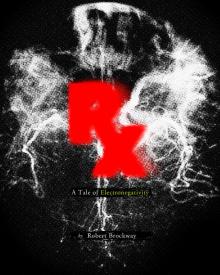 Rx: A Tale of Electronegativity
Rx: A Tale of Electronegativity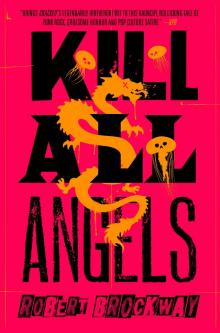 Kill All Angels
Kill All Angels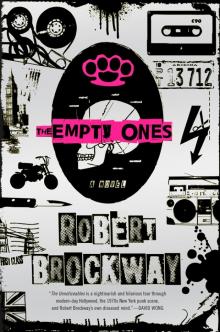 The Empty Ones
The Empty Ones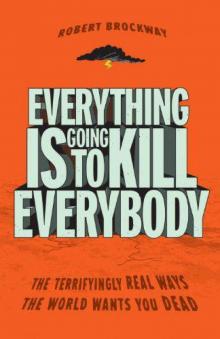 Everything Is Going to Kill Everybody
Everything Is Going to Kill Everybody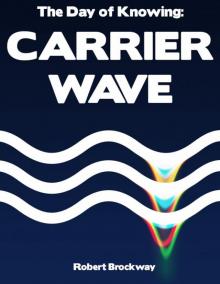 Carrier Wave: A Day Of Knowing Tale
Carrier Wave: A Day Of Knowing Tale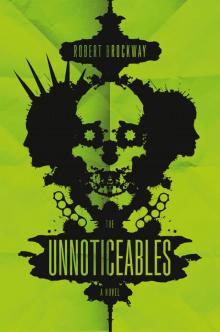 The Unnoticeables
The Unnoticeables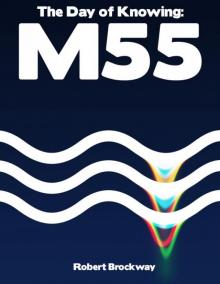 M55
M55